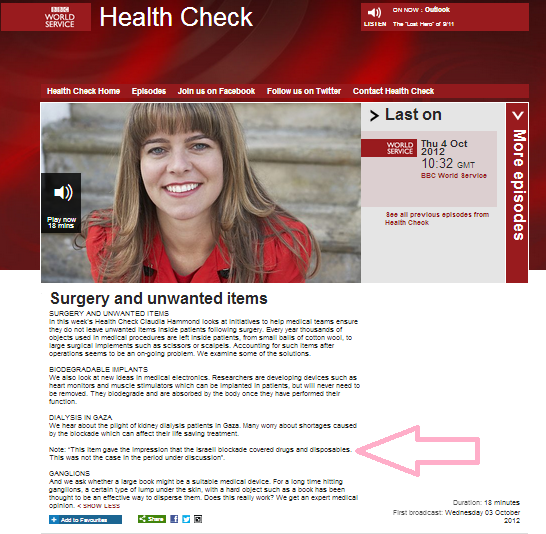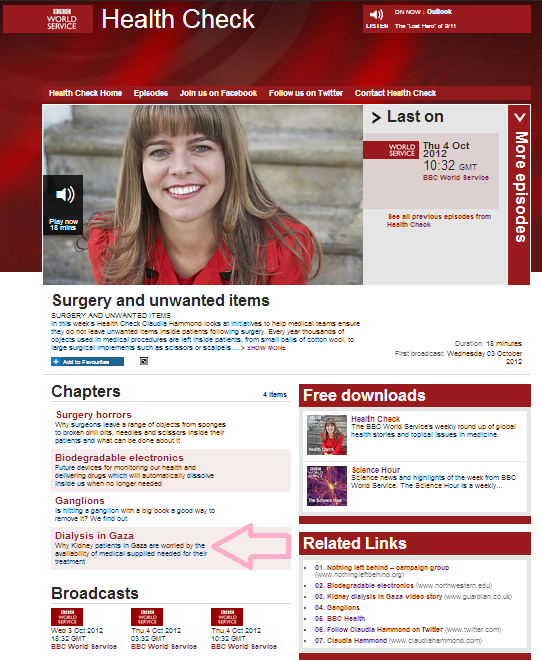At the beginning of July we noted that despite a complaint regarding the October 4th 2012 edition of the BBC World Service programme ‘Health Check’ having been partially upheld, the programme was still available on the internet in its original form.
Now – eleven months after the programme was originally aired, two months after the publication of the BBC Editorial Complaints Unit’s decision and following further correspondence from the original complainant Mr Stephen Franklin – the synopsis on programme’s webpage includes the following clarification.
“Note: “This item gave the impression that the Israeli blockade covered drugs and disposables. This was not the case in the period under discussion”. “
However, visitors to the webpage who elect not to open the drop down synopsis or instead to go directly to the specific ‘chapter’ concerned are still not made aware of the fact that presenter Claudia Hammond’s misleading introduction to the item – which they will still hear intact – was found to have breached BBC editorial guidelines on accuracy.
Clearly – as we have noted before – there is no point in the BBC wasting public resources to address audience complaints if, in cases in which those complaints are found to be valid, the output concerned – in all its various versions – is not either amended to reflect that fact or removed. This case raises the question of whether the BBC’s Editorial Complaints Unit has an effective mechanism for follow-up of complaints it upholds.






